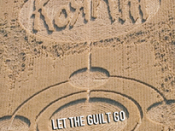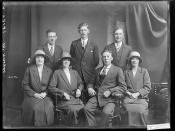Life is a journey not a destination. On the road of life adversity teaches the most valuable lessons. The emotional outcome of one's choices always carries a heavy burden; guilt exists a common feeling. "How unhappy is he who cannot forgive himself" (Syrus 48). Guilt causes a multitude of different reactions. In Steve Hamilton's novel and its sequel, A Cold Day in Paradise and Winter of the Wolf Moon, unresolved guilt burdens the protagonist. Despite countless efforts to overcome this guilt, he inevitably ends up in trouble with the law. In both novels, the protagonist, Alex McKnight displays a guilty conscience by over-indulging in investigations, which eventually casts suspicion on him until the truth appears.
Throughout both novels, Alex McKnight appears affected by his unresolved guilt. In A Cold Day in Paradise, McKnight's guilt emerges perceivable from the beginning of the story, witnessing the tragic shooting of his partner, Franklin, at a crime scene in Detroit leaves Alex suffering.
"After Franklin was killed, I decided to trade in my badge for a much safer profession" (Hamilton 5). Alex, unable to find forgiveness, beats himself up for not protecting Franklin resulting in heavy guilt. Chief Maven reinforces this guilt when he comments to McKnight: "Geez McKnight why didn't you go for your weapon when he first drew on you" (90). McKnight cannot handle the heavy emotional drains of guilt, in which the only way of
dealing comes to alienating himself from the situation. "I needed to close my eyes and not see Franklin on the floor next to me...I found the pills in the back of my medicine cabinet, I took one, and then another" (22). Although he successfully attempts to suppress his guilt, the sight of blood triggers flashbacks. The blood unlocks this unforgettable memory. "I tried to...


